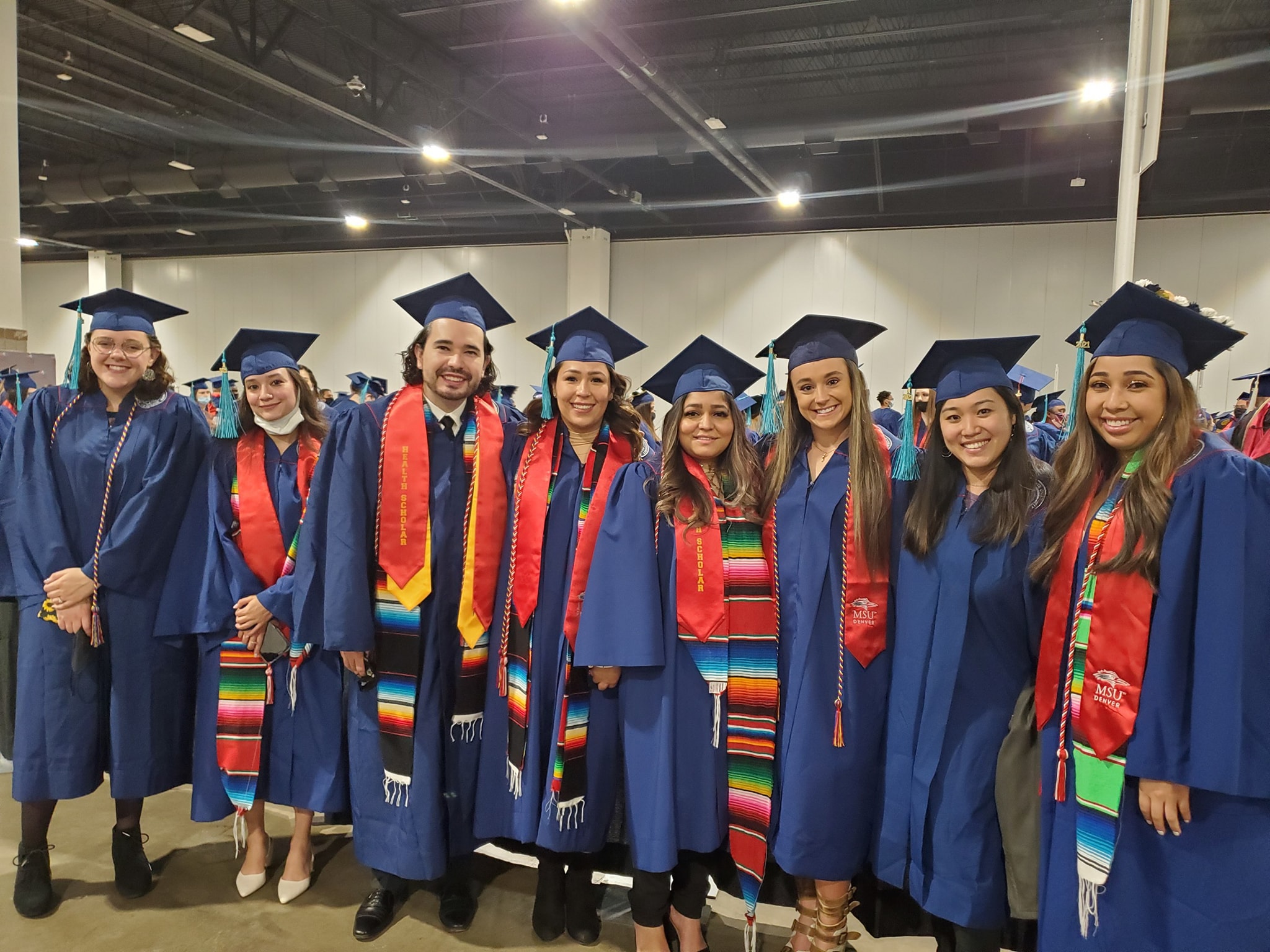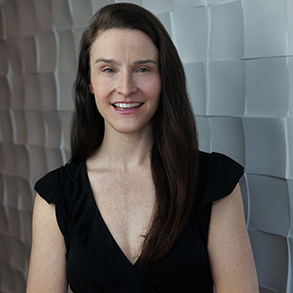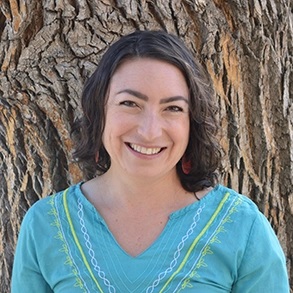

The Speech, Language, Hearing Sciences Department’s graduate program at Metropolitan State University of Denver has just become a candidate for accreditation, which allows the SLHS Department to launch a master’s degree in Speech Language Pathology.
“I’m ecstatic that our team has achieved this important milestone. It’s a culmination of about eight years of work by SLHS faculty members, both current and retired,” said Jessica Rossi-Katz, Ph.D., professor and department chair.

Rossi-Katz said she learned in mid-June that the Council on Academic Accreditation in Audiology and Speech-Language Pathology (CAA) of the American Speech-Language-Hearing Association awarded the program preaccreditation status, which is given to “developing or emerging” programs.
“With the launch of our graduate program in Speech Language Pathology, we will support diversifying the speech-language-pathology workforce and reducing health disparities in minority populations with communication disorders and differences,” Rossi-Katz said. “As a university that values access, we offer our talented undergraduates a direct path to fulfilling their professional aspirations.”
Rossi-Katz added that the CAA’s decision to award candidacy status followed her department’s submission of a comprehensive development plan that proved to the CAA that the SLHS Department has demonstrated a commitment and the ability to implement the program fully.
“This award of candidacy allows our program to matriculate students as we continue to document compliance with accreditation standards,” she said. “We will officially welcome our first cohort of master’s speech-language-pathology students next summer.”
Tess Kirsch, the CAA’s associate director of accreditation for policy and education, said MSU Denver’s program was in compliance with “all standards and has met CAA’s expectations and thresholds” for student outcomes.
“Candidacy status is awarded to new graduate-degree programs that meet all institutional and program eligibility requirements,” Kirsch said.
The CAA reported that the candidacy status will last through April 30, 2026, during which the SLHS Department will be closely monitored by the CAA. If the department maintains compliance in all CAA standards, it will earn full accreditation.
Rossi-Katz said the achievement is particularly impressive given that the SLHS Department became a stand-alone department just two years ago.
“We were a program in the Communications Arts and Sciences Department in the College of Letters, Arts and Sciences until the fall of 2019, when we became a stand-alone department within the College of Health and Applied Sciences,” she said. “We’ve definitely come into our own identity and are beginning to fully realize the mission of the department.”
Siva priya Santhanam, Ph.D., CCC-SLP, assistant professor in the SLHS Department, agreed with Rossi-Katz and called the candidacy for accreditation “a great achievement” not just for the department but for the profession in Colorado.
“The upcoming master’s program will truly help students in Colorado interested in pursuing a career in speech-language pathology,” Santhanam said. “And the increase in the number of speech–language pathologists in Colorado – there is currently a shortage – will help serve our larger community of clients with communication and swallowing disorders.”
Santhanam added that despite SLHS being a new and relatively small department, it has made a mark in the areas of research, community service, collaborations with other health-related departments, individualized teaching and advising, and service to MSU Denver’s autistic students.
In fact, Santhanam helped start the Integrated Supports for Students with Autism in College (ISSAC), a first-of-its-kind program in Colorado that serves college students on the autism spectrum with social, communication and self-advocacy skills. ISSAC started in 2019 and has served 31 students to date.
Santhanam said the SLHS Department has also developed Spanish-English bilingual resources for clients and families from bilingual backgrounds.
Marcia Walsh-Aziz, Ph.D., CCC-SLP, assistant professor in the SLHS Department, said she believes the SLHS faculty and staff bring a commitment to provide excellence not only to students but to the field.
“While working on the graduate program, we’re also reworking our undergraduate options to align even more with what a modern speech–language pathologist or audiologist needs to prepare for the workforce, including courses related to health communication, interprofessional–collaboration opportunities, disability studies and hands-on experience working with college students with autism,” Walsh-Aziz said. “We’re a department that’s ready to adapt and change where we need to in order to continue forward and not rely on just doing things the way they’re normally done.”
The SLHS Department also hired Ilana Oliff in August as a director of Clinical Education. While in her role, she has made everything her colleagues laid out a reality. Once the program starts, Oliff’s role will shift to providing supervision and mentorship to students, as well as coordinating external field placements for students in their second year of the program.
“I’ve been working hard to get the infrastructure, technology, systems, policies and procedures ready to support our first cohort of graduate students who will arrive in June,” Oliff said.

The program is reviewing over 100 received applications to select 12 applicants who will be the best fit for the program.
“In addition to being the only SLP master’s program in Denver, our program sets itself apart with our urban setting, designation as a Hispanic-Serving Institution and the bilingual specialization we will offer,” Oliff said.
The on-campus clinic will open shortly after the program begins, with the hope of having a full schedule in August. Students will then complete evaluations to develop and implement treatment under the supervision of licensed and certified speech-language pathologists. The clinic will be free of charge to members of the Auraria Campus and metro Denver, and no referral or insurance information will be needed.
“We aim to provide high-quality, culturally responsive, evidence-based care to those who are otherwise unable to receive speech-language therapy,” Oliff said.

